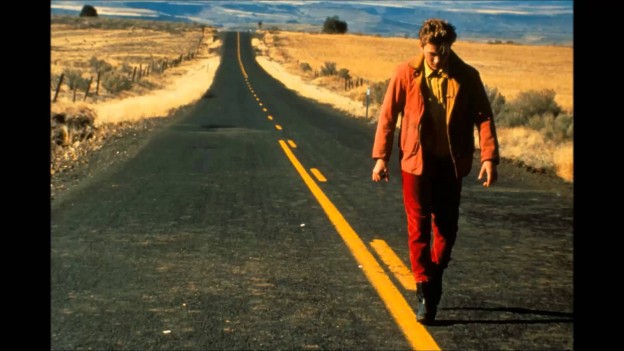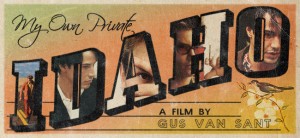Cynthia Marshall discusses the wrestling scene of As You Like It as it plays into the school of thought that the play is not one of simple light-hearted comedy. As lenses such as feminism and the questioning of social statuses are introduced into scholarly dialogue, the heavier themes of Shakespeare are being extrapolated (Marshall 265). The themes of fratricide and the anxiety of fissures within families, social implications of lineage and gender stability can be explored through interpretations of the wrestling match. The wrestling match also brings to light the idea of the lines between reality and performance blurring in a way that brings the anxieties of the play closer to the audience. Continue reading
Category Archives: Scholarly Criticism
Tragical-Comical-Historical
“Tragical-Comical-Historical Hotspur”, written by Roberta Barker, analyses the constantly evolving role of Hotspur in Henry IV. She understands that the perception of Hotspur shifted in accordance with the theatrical “construction of Heroism” (P.289). Evaluating Hotspur’s representation in performances over time and his role as a Hero gives an insight into the cultural understanding of “masculine honor” (P.289) Hotspur can be seen as a flag barer for Heroism. He was a ‘virtuous’ character who showed unwavering military bravery, but the theatrical interpretation of his Heroism is dependent on its critical understanding at the time. Continue reading
Utopia or Vacation
As a pastoral comedy, As You Like It features the Forest of Arden as a setting that fosters utopian values. While characters such as Duke Senior celebrate the culture of Arden, the behaviors of his men and the antics of Jacques and Touchstone call the utopian status of the forest into question. In his essay “As You Like It: The Thin Line Between Legitimate Utopia and Compensatory Vacation”, Farrar examines how Shakespeare dramatizes the problems facing the utopian imagination through the conflicts of each character’s attitude. Continue reading
Elizabethan Song in Shakespeare
Merry and mirthful songs repeatedly caper through “As You Like It”, with blithe, bucolic lyrics that suggest what the modern ear can no longer hear. Whatever melodies, tones, and textures Shakespeare envisioned have mostly evaporated under the sweep of time, and an unaided imagination tends to flop short in grasping the succinct levity of these songs. The thumping, pounding rhythms of modern pop and rap music are a poor mental substitute for whatever non-textual effects Shakespeare desired in his musical insertions, and so the task of replaying Shakespeare is not an immediately easy one.

Scripted Love
Celia exposes the performative aspect of romantic love, in which the practice, language and theatrics are not a natural response to falling in love; instead, the feeling of love is preceded by, created by, this performance. The performance is put together using a repertoire of learned conventions, myths, cultural aphorisms, and meaningless clichés, each one selected and appropriated when needed to perpetuate the love narrative. Continue reading

Selective Amnesia in Shakespeare’s 1Henry IV
The characters from Shakespeare’s 1Henry IV are engaged in constant forgetting as it appears that forgetting is a tool, used by characters throughout the play to achieve their through actions. Literary critic Greenblatt discusses the play in terms of producing and containing subversion and disorder, and forgetting is to some scholars what drives the chaos. According to Jonni Koonce Dunn (Ph.D), forgetting is not just the absence of memory but also a coordinated erasure “conducive to re-imagination and re-inscription” (4). Continue reading

My Own Private Idaho (1991)
When I had first watched the film My Own Private Idaho (1991), I was unaware of the specific references to Shakespeare’s Henry IV Parts I and II and Henry V. Categorized and hyped as a queer-road-western film by the press, the Shakespearean element was largely overlooked in favor of the then-shocking reality that beloved teen heartthrob and James-Dean-lookalike River Phoenix was portraying a gay street hustler type.
Achieving cult status after the untimely and premature death of River Phoenix in October 1993, the film has been ranked and met with critical acclaim by many critics as one of the best films of the 1990s and the best performances actors Keanu Reeves and Phoenix will find in years. The Shakespearean element, rather than taking away from the realistic portrayal of the independent film, actually adds to the picture in how it helps to justify the eccentric art cinema effects and underline the central themes of the film.
New Historicism in Shakespeare’s Histories

A Portrait of King Henry IV. To what extent can we ascertain the real man through Shakespeare’s play?
For those new to Shakespeare’s history plays, a swarm of confused questions accompanies the opening passages of I Henry IV, even as the masterful strokes of drama and debauchery tempt readers and viewers into its universe: What, in claiming history, is Shakespeare actually representing? Would the King have spoken anything like this, or any of the characters for that matter? How much of this is factual, or how much fact is even possible in an early modern society with limited literacy to record history? What impulses or visions direct the embellishments? Simply put, what can one confidently tell a friend about history after reading Part I of Henry IV? These questions are more easily left dormant in reading Shakespeare’s other fictional plays, with the casual assumption that the fictions of the play stage fantasized elements of Shakespeare’s real environment. But in a play that aspires to historicity, some theoretical framework is needed to comfortably reconcile this tension between fiction and history. Continue reading
Hal’s Adolescence
“Where shall we take a purse tomorrow, Jack?” (1. 2. 98), exclaims an excited Prince Henry, known among his friends as “Hal.” Despite his royal upbringing, the wild introduction to the Prince’s favorite hang-out spot, the tavern, suggests the rebellious young Prince’s crude humor and hobbies. Continue reading

Falstaff’s ‘Safety-Zone’: The Battle of Shrewsbury
Have you ever watched a war movie when, in the midst of a huge battle with thousands of soldiers engaged in hand to hand combat, two important and opposing characters, protagonist and antagonist, make dramatic eye contact? And instantaneously, a imaginary, absurd bubble with a radius of about 10 yards seems to shield them from the throng of other warriors, flying projectiles, and general danger so that they can safely duke it out, one-on-one, sans interruption? I’ll call this the ‘safety-zone’ convention.

